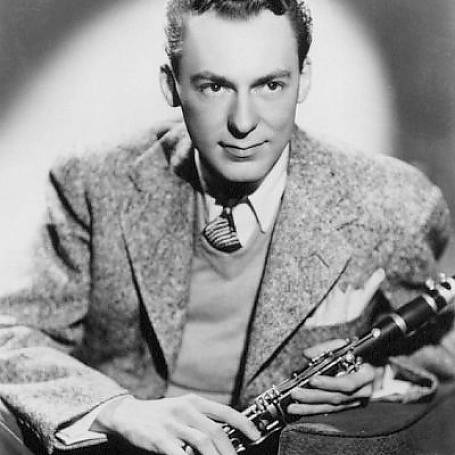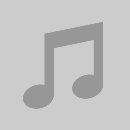Woody Herman
- Genre: Instrumental
A fine swing clarinetist, an altoist whose sound was influenced by Johnny Hodges, a good soprano saxophonist, and a spirited blues vocalist, Woody Herman's greatest significance to jazz was as the leader of a long line of big bands. He always encouraged young talent and, more than practically any bandleader from the swing era, kept his repertoire quite modern. Although Herman was always stuck performing a few of his older hits (he played "Four Brothers" and "Early Autumn" nightly for nearly 40 years), he much preferred to play and create new music.
Woody Herman began performing as a child, singing in vaudeville. He started playing saxophone when he was 11, and four years later he was a professional musician. He picked up early experience playing with the big bands of Tom Gerun, Harry Sosnik, and Gus Arnheim, and then in 1934, he joined the Isham Jones orchestra. He recorded often with Jones, and when the veteran bandleader decided to break up his orchestra in 1936, Herman formed one of his own out of the remaining nucleus. The great majority of the early Herman recordings feature the bandleader as a ballad vocalist, but it was the instrumentals that caught on, leading to his group being known as "the Band That Plays the Blues." Woody Herman's theme "At the Woodchopper's Ball" became his first hit (1939). Herman's early group was actually a minor outfit with a Dixieland feel to many of the looser pieces and fine vocals contributed by Mary Ann McCall, in addition to Herman. They recorded very frequently for Decca, and for a period had the female trumpeter/singer Billie Rogers as one of its main attractions.
By 1943, the Woody Herman Orchestra was beginning to take its first steps into becoming the Herd (later renamed the First Herd). Herman had recorded an advanced Dizzy Gillespie arrangement ("Down Under") the year before, and during 1943, Herman's band became influenced by Duke Ellington; in fact, Johnny Hodges and Ben Webster made guest appearances on some recordings. It was a gradual process, but by the end of 1944, Woody Herman had what was essentially a brand new orchestra. It was a wild, good-time band with screaming ensembles (propelled by first trumpeter Pete Candoli), major soloists in trombonist Bill Harris and tenorman Flip Phillips, and a rhythm section pushed by bassist/cheerleader Chubby Jackson and drummer Dave Tough. In 1945 (with new trumpeters in Sonny Berman and Conte Candoli), the First Herd was considered the most exciting new big band in jazz. Several of the arrangements of Ralph Burns and Neal Hefti are considered classics, and such Herman favorites entered the book as "Apple Honey," "Caldonia," "Northwest Passage," "Bijou" (Harris' memorable if eccentric feature), and the nutty "Your Father's Mustache." Even Igor Stravinsky was impressed, and he wrote "Ebony Concerto" for the orchestra to perform in 1946. Unfortunately, family troubles caused Woody Herman to break up the big band at the height of its success in late 1946; it was the only one of his orchestras to really make much money. Herman recorded a bit in the interim, and then, by mid-1947, had a new orchestra, the Second Herd, which was also soon known as the Four Brothers band. With the three cool-toned tenors of Stan Getz, Zoot Sims, and Herbie Steward (who a year later was replaced by Al Cohn) and baritonist Serge Chaloff forming the nucleus, this orchestra had a different sound than its more extroverted predecessor, but it could also generate excitement of its own. Trumpeter/arranger Shorty Rogers and eventually Bill Harris returned from the earlier outfit, and with Mary Ann McCall back as a vocalist, the group had a great deal of potential. But, despite such popular numbers as Jimmy Giuffre's "Four Brothers," "The Goof and I," and "Early Autumn" (the latter ballad made Getz into a star), the band struggled financially. Before its collapse in 1949, such other musicians as Gene Ammons, Lou Levy, Oscar Pettiford, Terry Gibbs, and Shelly Manne m
Woody Herman began performing as a child, singing in vaudeville. He started playing saxophone when he was 11, and four years later he was a professional musician. He picked up early experience playing with the big bands of Tom Gerun, Harry Sosnik, and Gus Arnheim, and then in 1934, he joined the Isham Jones orchestra. He recorded often with Jones, and when the veteran bandleader decided to break up his orchestra in 1936, Herman formed one of his own out of the remaining nucleus. The great majority of the early Herman recordings feature the bandleader as a ballad vocalist, but it was the instrumentals that caught on, leading to his group being known as "the Band That Plays the Blues." Woody Herman's theme "At the Woodchopper's Ball" became his first hit (1939). Herman's early group was actually a minor outfit with a Dixieland feel to many of the looser pieces and fine vocals contributed by Mary Ann McCall, in addition to Herman. They recorded very frequently for Decca, and for a period had the female trumpeter/singer Billie Rogers as one of its main attractions.
By 1943, the Woody Herman Orchestra was beginning to take its first steps into becoming the Herd (later renamed the First Herd). Herman had recorded an advanced Dizzy Gillespie arrangement ("Down Under") the year before, and during 1943, Herman's band became influenced by Duke Ellington; in fact, Johnny Hodges and Ben Webster made guest appearances on some recordings. It was a gradual process, but by the end of 1944, Woody Herman had what was essentially a brand new orchestra. It was a wild, good-time band with screaming ensembles (propelled by first trumpeter Pete Candoli), major soloists in trombonist Bill Harris and tenorman Flip Phillips, and a rhythm section pushed by bassist/cheerleader Chubby Jackson and drummer Dave Tough. In 1945 (with new trumpeters in Sonny Berman and Conte Candoli), the First Herd was considered the most exciting new big band in jazz. Several of the arrangements of Ralph Burns and Neal Hefti are considered classics, and such Herman favorites entered the book as "Apple Honey," "Caldonia," "Northwest Passage," "Bijou" (Harris' memorable if eccentric feature), and the nutty "Your Father's Mustache." Even Igor Stravinsky was impressed, and he wrote "Ebony Concerto" for the orchestra to perform in 1946. Unfortunately, family troubles caused Woody Herman to break up the big band at the height of its success in late 1946; it was the only one of his orchestras to really make much money. Herman recorded a bit in the interim, and then, by mid-1947, had a new orchestra, the Second Herd, which was also soon known as the Four Brothers band. With the three cool-toned tenors of Stan Getz, Zoot Sims, and Herbie Steward (who a year later was replaced by Al Cohn) and baritonist Serge Chaloff forming the nucleus, this orchestra had a different sound than its more extroverted predecessor, but it could also generate excitement of its own. Trumpeter/arranger Shorty Rogers and eventually Bill Harris returned from the earlier outfit, and with Mary Ann McCall back as a vocalist, the group had a great deal of potential. But, despite such popular numbers as Jimmy Giuffre's "Four Brothers," "The Goof and I," and "Early Autumn" (the latter ballad made Getz into a star), the band struggled financially. Before its collapse in 1949, such other musicians as Gene Ammons, Lou Levy, Oscar Pettiford, Terry Gibbs, and Shelly Manne m



